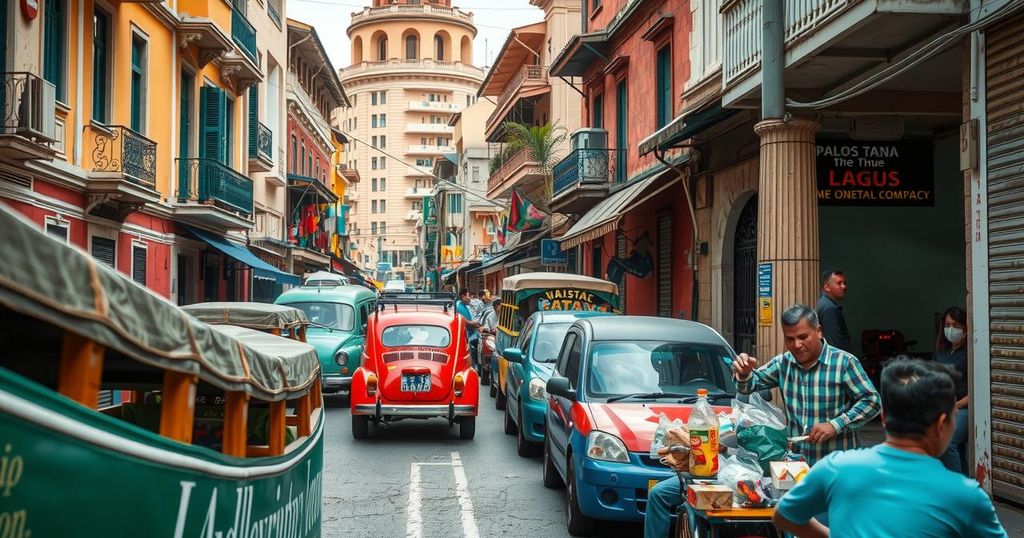Akinola Davies Jr.’s *My Father’s Shadow*: A Groundbreaking Nigerian Film at Cannes

*My Father’s Shadow* is Akinola Davies Jr.’s debut film, marking Nigeria’s first appearance at Cannes. Set on the pivotal June 12, 1993, elections, it explores the experiences of two brothers, Akin and Remi, in Lagos alongside their distant father. The film offers a poetic lens, emphasizing family dynamics against a backdrop of political turmoil and social unrest, crafting a heartfelt narrative about connection and loss.
Akinola Davies Jr. brings his debut film, My Father’s Shadow, to the Cannes Film Festival as a historical first — marking Nigeria’s inaugural entry at the event. Set against the harrowing backdrop of the June 12, 1993 elections, it tells a gripping tale of how the political landscape impacts everyday lives. The plot revolves around siblings Akin and Remi, who initially seem disconnected from the weighty events unfolding in their country.
Opening with rich, intimate cinematography, Davies Jr., alongside cinematographer Jermaine Edwards, taps into the simplicity and beauty of childhood. Their collaboration resonates with a poetic sensibility reminiscent of narratives like Raven Jackson’s All Dirt Roads Taste of Salt. Natural sounds — the buzzing of flies and rustling leaves — enhance the immersive effect. However, the children’s peaceful day quickly shifts when they encounter their father, Folarian, played excellently by Sopé Dirisu, marking a turning point in this delicate narrative.
The film unravels as the boys venture into Lagos with their father, who often feels like a ghost in their lives. This outing reveals their father’s past, and through a danfo bus ride, they gain insights into the city’s vibrant yet tumultuous atmosphere. The journey sparks curiosity about political matters, as conversations about the horrific Bonny Camp massacre unravel further layers of their reality.
My Father’s Shadow takes on a semi-autobiographical nature, influenced by Davies Jr.’s family dynamics and childhood memories. The storytelling, at times, can feel disjointed; some viewers might even find it challenging to follow. Nevertheless, the poignancy in the father-son interactions and Davids Jr.’s direction shine through, delivering a heartfelt exploration of familial bonds against the political turmoil of the era.
As the day’s narrative progresses, the setting transitions from easygoing to increasingly tense, reflecting the political chaos unfolding. A curfew is announced, and the specter of violence looms large. Davies Jr.’s adept editing captures this shift, mirroring the urgency of Chris Abani’s poetry that reflects the grim realities of that time.
Ultimately, My Father’s Shadow becomes a powerful allegory of the fragility of both family and national hope. As violence erupts following the annulment of election results, the contrast between personal struggles and the larger national crisis becomes palpable. This debut marks a significant contribution to cinema, showcasing Davies Jr.’s promise as a filmmaker capable of marrying personal narratives with universal themes.
In essence, *My Father’s Shadow* stands out as an evocative exploration of childhood, loss, and political upheaval. It reflects on intimate father-son connections amid a transformative period in Nigerian history. Akinola Davies Jr.’s nuanced direction, merged with rich visual storytelling, ensures that this film resonates on multiple levels, making it a must-watch for audiences and a groundbreaking achievement for Nigerian cinema at Cannes.
Original Source: www.hollywoodreporter.com







